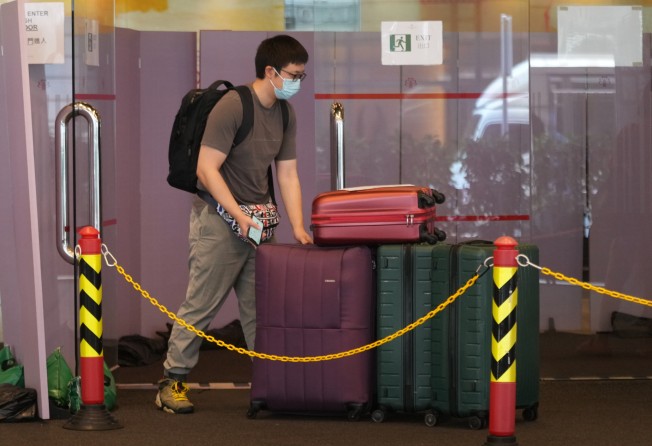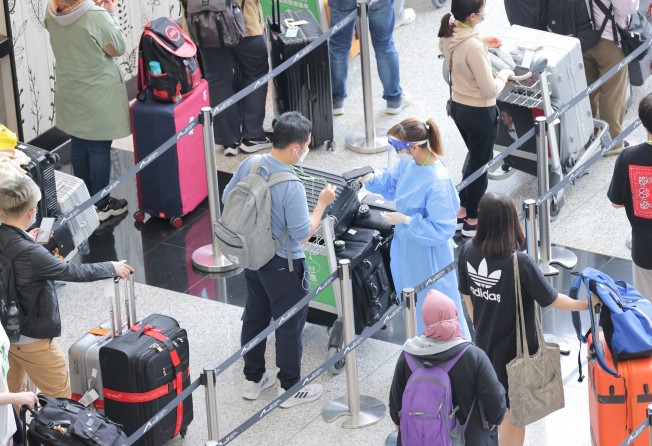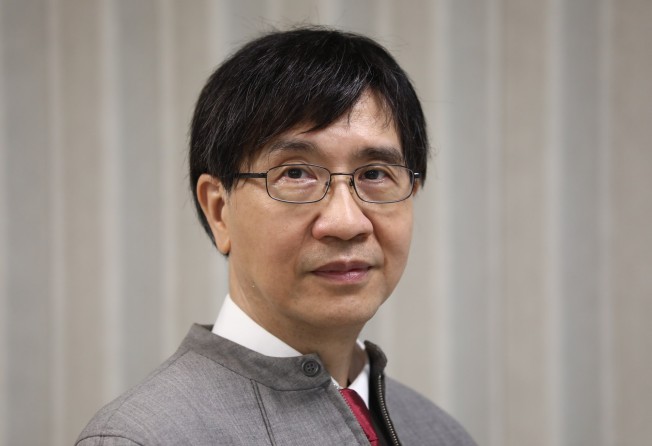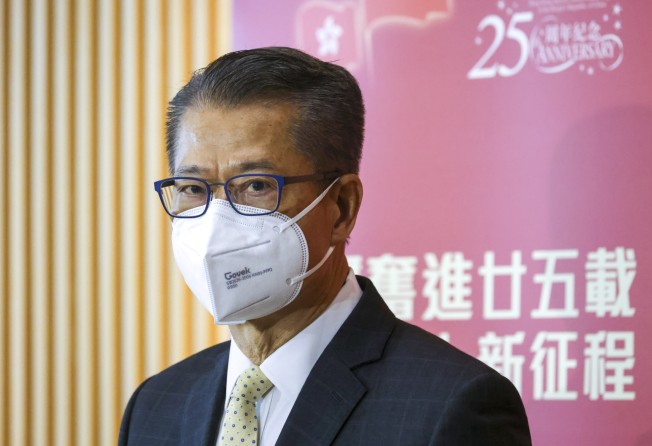
Hong Kong has dropped Covid hotel quarantine after 2½ years: here is all you need to know about how it got to this point
- The Post looks at details of new arrangement and how long it took to reach this point
- But tourism industry leader says new ‘0+3’ scheme likely to boost outbound travel, but not inbound

After more than two years of stringent Covid-19 border control, Hong Kong has finally dropped all hotel quarantine measures for overseas arrivals starting next Monday. However, travellers are still required to self-monitor for three days.
The long-awaited announcement from Chief Executive John Lee Ka-chiu on Friday signalled an end to one of the world’s toughest quarantine systems amid the pandemic. The Post breaks down the latest policy change.
1. What are the latest arrangements?
Under the coming “0+3” plan, travellers will undergo three days of home medical surveillance, during which they are allowed to go out but are prohibited from visiting high-risk premises such as bars and restaurants.
Inbound travellers would no longer be required to obtain a negative result on a polymerase chain reaction (PCR) test 48 hours before boarding. Instead, they will be allowed to take a self-administered rapid antigen test (RAT) within 24 hours of departure.

2. How long did it take to get to this point?
It took Hong Kong 2½ years to finally lift the mandatory hotel quarantine for overseas arrivals.
When the pandemic was in its early days in March 2020, all people arriving in Hong Kong were required to quarantine for 14 days either at home or in other accommodation.
Later in December of the same year, arrivals could only book rooms at hotels under the Designated Quarantine Hotel Scheme.
Restrictions were again tightened in view of the widespread Omicron variant. In December last year, countries and territories which reported cases of the viral strain would be listed as high-risk areas, while only Hong Kong residents who had received two doses of vaccines were allowed to return, followed by a 21-day quarantine. The stringent requirement had sparked an outcry among locals and visitors, slamming it as “mentally stressful, financially draining and inhumane”.
The government only slashed the three-week mandatory to two weeks for fully vaccinated travellers in February of this year, and later cut it to seven days in April.
Measures were relaxed further last month by replacing it with the “3+4” plan, allowing overseas arrivals to spend three days in hotel isolation and four at home under medical surveillance, with limited movement citywide.
Those infected are issued a red code automatically, while those under home-based medical surveillance receive a yellow code which essentially bans them from entering places such as bars and restaurants.
3. What prompted the changes?
The government has faced mounting calls from health experts and business leaders to ease travel measures, who warned that the city risked losing its competitiveness and a talent drain due to tough border rules as neighbouring cities continued to open up.
A series of major sports events have been cancelled or moved elsewhere because of strict Covid-19 rules or the government’s failure to make decisions in time to allow proper organisation. This included the 2023 World Dragon Boat Racing Championships, which were due to be held in Hong Kong next August but eventually moved to Thailand.
Hong Kong is also under pressure to relax its rules ahead of a high-level financial summit it will host on November 1 and 2, which is set to be attended by the world’s top bankers and financiers. That is followed by a mega sporting event, the Hong Kong Sevens.
On Tuesday, Lee said his administration was determined to reconnect the city with the world and reduce inconvenience to arrivals. On the same day, Beijing also offered its first clear blessing for the city to ease travel restrictions, with Huang Liuquan, deputy director of the State Council’s Hong Kong and Macau Affairs Office, saying local authorities did not have to choose between opening up to the world and the rest of the country, which has adopted a “dynamic zero policy” vastly different from other places.
4. How risky is loosening the policy?
Health officials earlier said imported cases only accounted for 1.5 per cent of the total number of daily infections in the city, while 40 per cent of the infected visitors tested positive at the airport and 35 per cent during the first three days. Less than 5 per cent tested positive eight days after arrival.

Secretary for Health Lo Chung-mau said on Friday that the daily Covid-19 caseload had reached a peak in early September, adding the impact of the pandemic in recent months has been relatively minor compared with the first few months of the year. This was mainly because the vaccination rate had increased, especially for booster shots, he said.
City leader Lee also said this wave of the pandemic had given him confidence Hong Kong’s policies could suppress infections.
Top microbiologist and government adviser Professor Yuen Kwok-yung also suggested Covid-19 had transformed from “a highly destructive infectious disease to a milder endemic one”, adding most of the population had either been vaccinated or infected, which had greatly reduced the chances of serious cases or fatalities.

5. Is it sufficient to boost the city’s economy?
Financial Secretary Paul Chan Mo-po had earlier suggested that the city might record a deficit exceeding HK$100 billion (US$12.7 billion) for this financial year, almost twice the amount forecast, amid the pandemic and a weak external economic environment.
Economists and the catering sectors have argued that the economy could only be effectively stimulated when the city opened up, as unlike mainland China, it could not solely rely on its domestic consumption.
But Fanny Yeung, executive director of the Travel Industry Council, said the policy changes would only boost outbound travel as many residents were hoping to go on holiday after being cooped up in the city for the last three years, but not inbound.
Only those on essential business trips and visiting family would be willing to go through the three days of medical surveillance, Yeung said.
“Based on the [amber] code, people cannot enter any restaurants. If you are a tourist, I just think you wouldn’t want to go on holiday if you cannot go to restaurants,” she added.